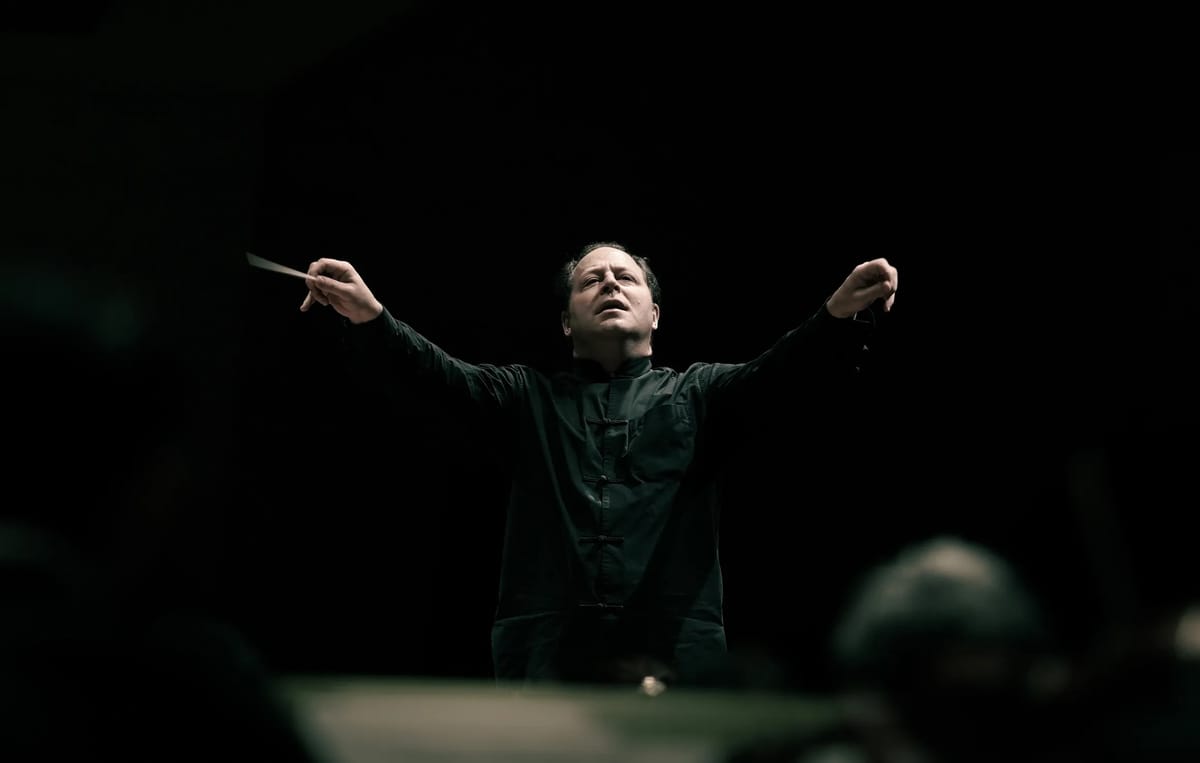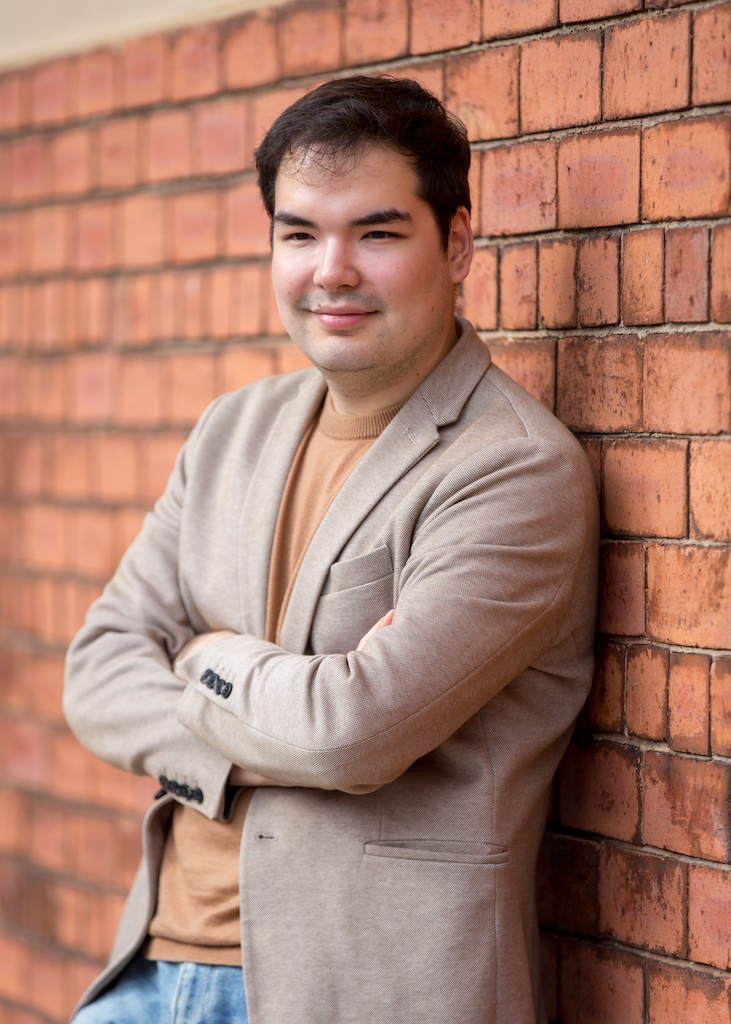The Rachmaninoff Connection

A cornerstone of concert repertoire, Rachmaninoff’s Rhapsody on a Theme of Paganini continues to resonate with audiences across the world. Ahead of their concert with the Symphony Orchestra of India, renowned conductor John Axelrod and the young virtuoso pianist Alim Beisembayev take us through the intricacies of this popular work and explain why it is special to them.
When Niccolò Paganini wrote 24 Caprices for Solo Violin between 1802 and 1817, little did the Italian violinist and composer know that the last caprice of this collection would lend itself to scores of variations by notable Romantic-era composers, including Franz Liszt and Johannes Brahms. Among them, Sergei Rachmaninoff’s interpretation of the famous 24th caprice, written in 1934, continues to captivate both performers and audiences. Titled Rhapsody on a Theme of Paganini, Op. 43, Rachmaninoff’s composition for piano and orchestra premiered later that year at the Lyric Opera House in Baltimore with the Philadelphia Orchestra under the baton of Leopold Stokowski and with the Russian composer himself at the piano. Rachmaninoff’s work comprises a set of 24 variations in a single movement and follows the tempo of a typical concerto with a slower middle section flanked by a fast-paced beginning and ending.
Amid the sparkling symphonic concerts and recitals of the SOI Spring 2023 Season, this is one that is looked forward to for several reasons. On 19th February, the renowned American conductor John Axelrod will make his debut in India with the SOI for a performance of Beethoven’s Leonore Overture No. 3 and Tchaikovsky’s Symphony No. 6 “Pathetique”. Wedged between the two, Rachmaninoff’s Rhapsody on a Theme of Paganini is expected to set the tone for a rapturous evening. Kazakh-born pianist Alim Beisembayev, winner of First Prize at The Leeds International Piano Competition in 2021, will join the SOI for this section of the programme. Aside from the level of genius associated with Rachmaninoff’s Rhapsody, the work is incredibly significant to both Axelrod and Beisembayev.
An Alpine Resonance
For the American conductor, who was scheduled to conduct the SOI in the spring of 2022 only to have his trip cancelled due to the pandemic, the rhapsody is especially momentous. Born in Houston, Texas, the conductor has held many a prestigious post—from Artistic and Musical Director of the Royal Seville Symphony Orchestra to Principal Guest Conductor of the City of Kyoto Symphony Orchestra and Principal Conductor of the Bucharest Symphony Orchestra; he continues to hold the latter two posts at present. The dynamic conductor tells us that he remains particularly connected to the work that Rachmaninoff wrote at his Swiss summer home Villa Senar near Lake Lucerne for many reasons. “Rachmaninoff lived in Lucerne where I was Chief Conductor of the Lucerne Symphony Orchestra and Music Director of the Lucerne Theater from 2004 to 2009. I still live in Switzerland but on the French side in Lavaux. Yet, no matter where, Rachmaninoff’s music is what echoes from the Alps and lakes for me,” says Axelrod, whose inclination for perfectly pairing music with food and wine led him to host the Culinary Concerts of Chardonne that feature award-winning musicians and the best of Lavaux wines.

“The rhapsody holds a special place in the repertoire for all pianists. These 24 virtuosic variations, themselves based on Paganini’s 24 Caprices, are fiendishly difficult, and it is not surprising that the ‘Devil’s Violin’ and the medieval chant ‘Dies Irae’ are associated with this work. It is a late work for Rachmaninoff, after his enormously successful career as a soloist, composer and chamber music performer,” Axelrod explains. “The main theme seems like a rather simple melody played by the soloist, even in octaves between the two hands. But then, it never stops until the final surprising staccato note to make the final ‘wink’. When Rachmaninoff premiered the work, he set the standard by which all other versions are judged (and there are over 400 recordings!),” he says.
A Laudable Link
The Kazakh-born pianist Beisembayev had wished to play the rhapsody since he was a teenager. Some years later, in September 2021, he would perform and win First Prize for this very work at The Leeds International Piano Competition with the Royal Liverpool Philharmonic Orchestra conducted by Andrew Manze. The Guardian called this young, promising graduate of The Purcell School, a “worthy winner” with a “real musical personality”. Currently completing his master’s degree at London’s Royal College of Music, he has performed with the likes of the Moscow State Symphony and at venerable venues like the Royal Festival Hall and Wigmore Hall. “This work has a special place in my heart. I first played it with an orchestra in 2018, so I was delighted to bring it back to Leeds in 2021 with a more experienced point of view,” says Beisembayev who will harness his technical prowess and impressive musical interpretation skills to give life to Rachmaninoff’s expressive masterpiece with the SOI and Axelrod later this month.
“It is a highly original work of brilliant writing for piano and orchestra. The two parties work with and against each other creating the most vibrant and energised atmosphere. Although it is named Rhapsody on a Theme of Paganini, it is not to be mistaken to be inferior to a full concerto. The only difference is the form of the work which consists of 24 variations, where each one melds into another, either with witty and subtle differences in character, or significantly contrasting changes but always beautifully blended,” says Beisembayev, breaking down the composition.
Significance of the Sublime
If Rachmaninoff’s Rhapsody is of immense importance to musicians to date, it is the well-known 18th variation in this composition that continues to strike a chord with both, the performer and listener. “It is the highlight of the whole piece for me—always emotionally moving and the coda (including variations 19 to 24) is just a great burst of energy,” says Beisembayev, now 25, ahead of his first visit to India.
Variation No. 18, tender and ripe with emotion, also represents a memorable occasion in Axelrod’s life. For one, he met his wife, a Russian, when he was conducting this very work in Moscow in 2015. “Our eyes met and we smiled at each other and cupid shot his arrow. Of course, Variation 18 was to become our theme. But most of all, when our son was born in 2018, he was very late in his birth. We tried to induce labour, but nothing worked. I suggested music as our soon-to-be-born listened to music throughout the pregnancy. Beethoven’s Symphony No. 5 didn’t work nor did Bach’s Goldberg Variations. I thought even the timpani of Brahms’s Symphony No. 1 would help. But then, remembering our meeting, and his Russian heritage, I said Variation 18. Within seconds, he was born. Therefore, it is our theme and I am very proud to share it with your orchestra and audience,” says Axelrod.
Beisembayev shares this enthusiasm. “I’m excited to play with Maestro Axelrod whose work I admire very much. It is always a pleasure for solo pianists to collaborate with new musicians as we learn so much during the process and I look forward to the partnership,” he says. Anticipating the collaboration, Axelrod is well aware of the level of musicianship that the prize-winning Beisembayev comes with. To witness Axelrod and Beisembayev perform Rachmaninoff’s spectacular work which brims with significance for them, personally and professionally, should be special—a performance that they too look forward to enjoying with both the SOI and the audience.
By Beverly Pereira. This piece was originally published by the National Centre for the Performing Arts, Mumbai, in the February 2023 issue of ON Stage – their monthly arts magazine.






